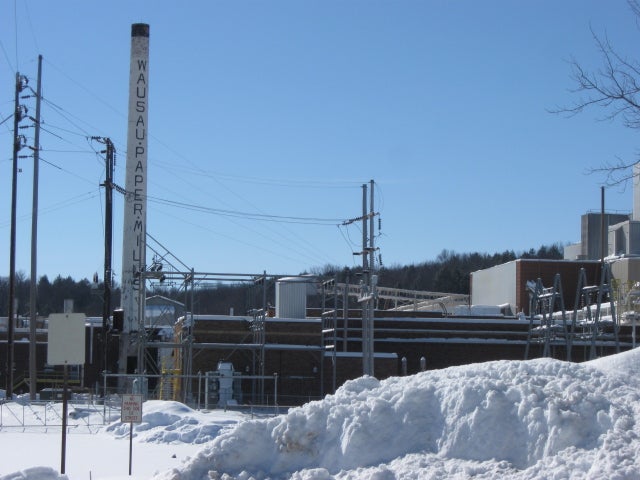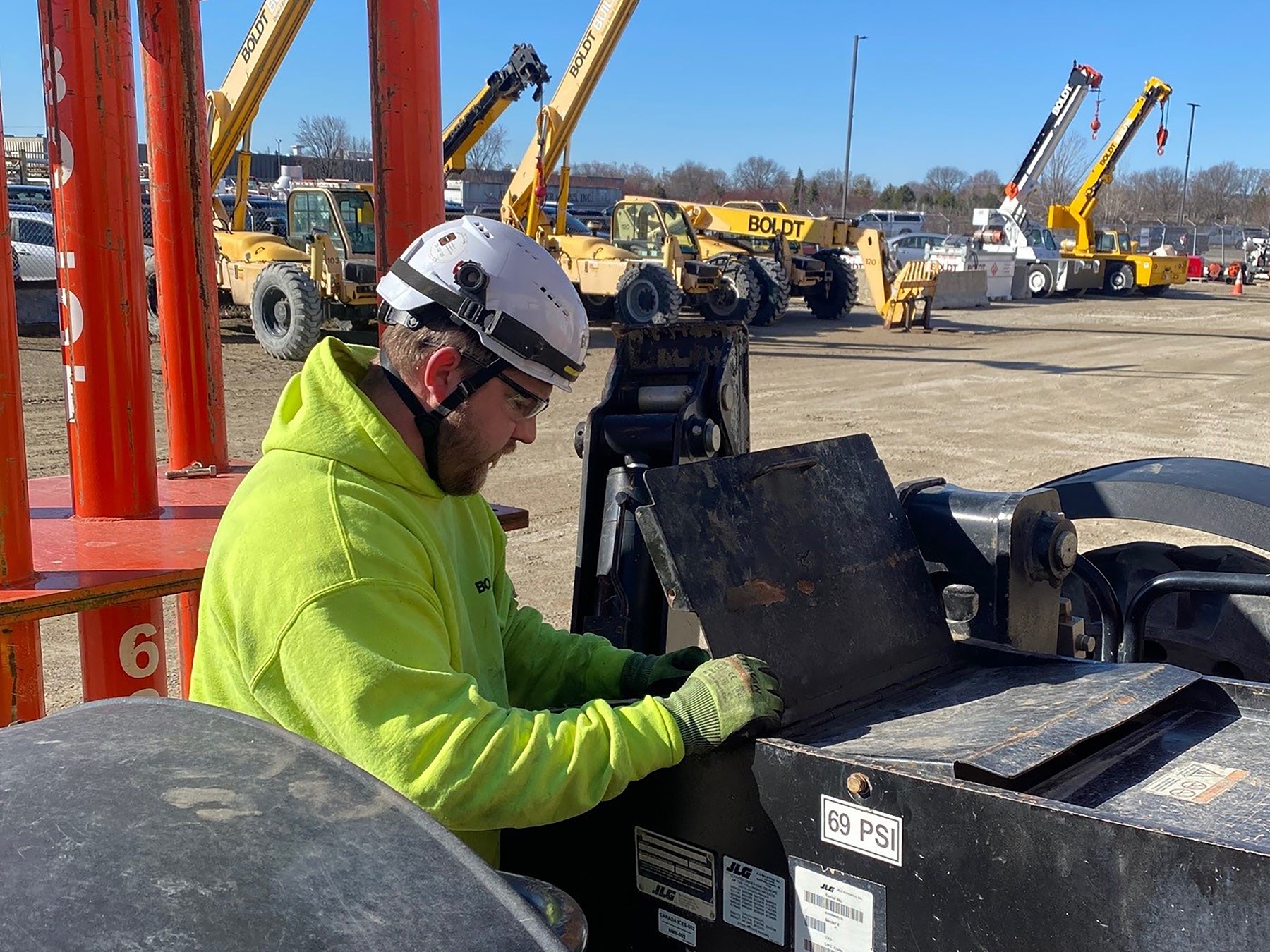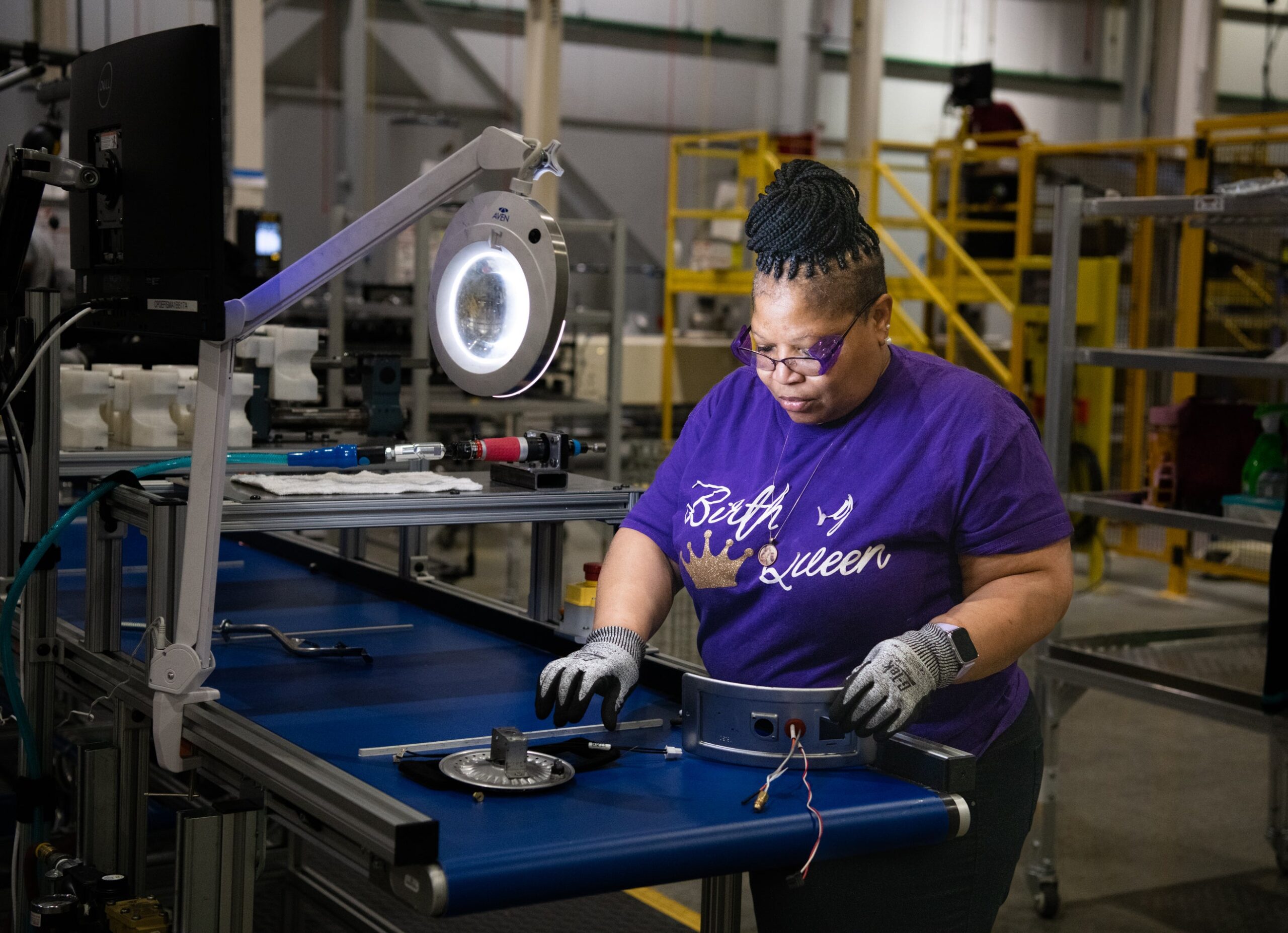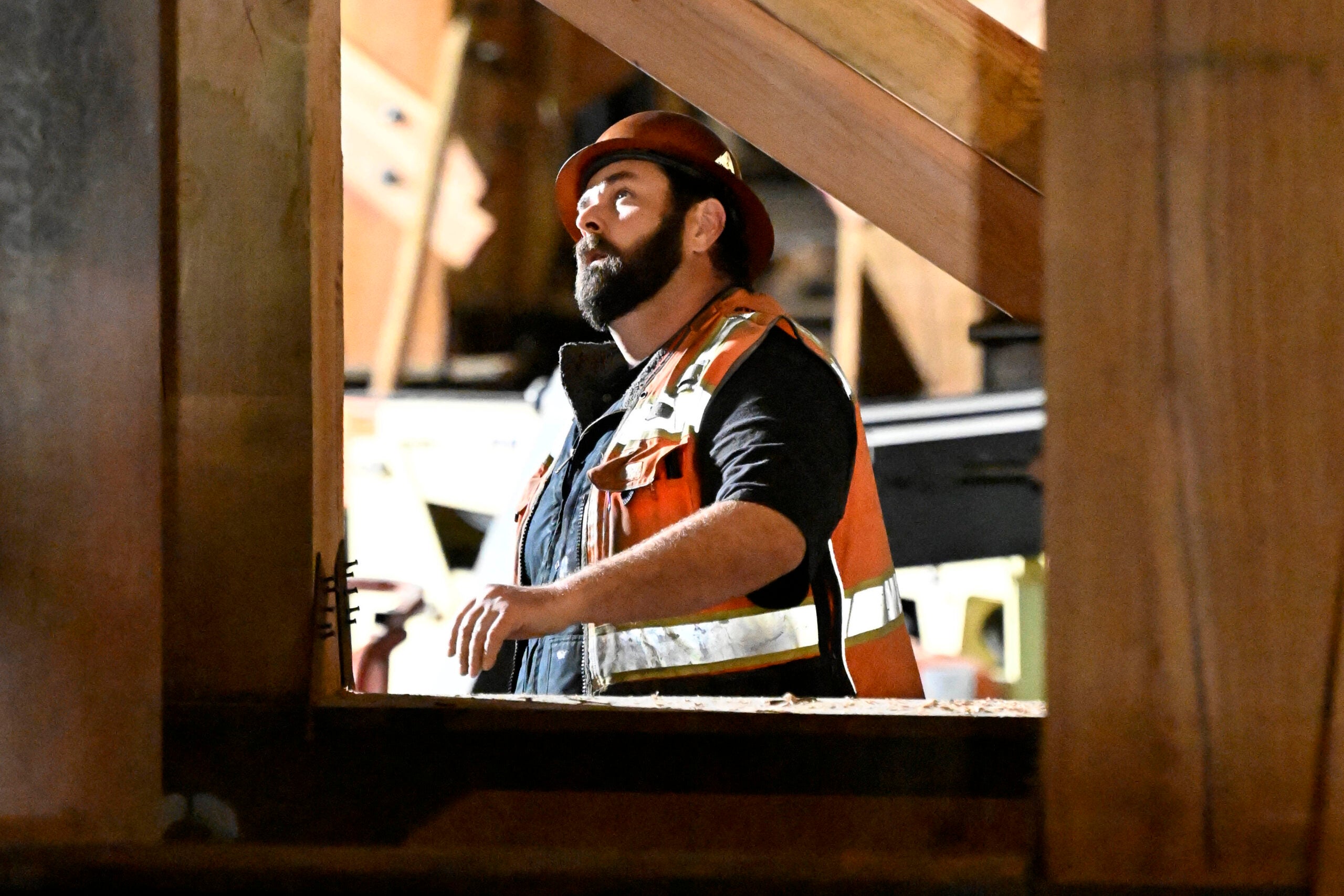Editor’s Note: This article is part four of a Wisconsin Public Radio News series on long-term unemployment (part one, part two and part three).
The closure of paper mills in the Wisconsin River Valley has created a long term unemployment crisis as communities and workers struggle to adapt to new economic realities.
On a cold February morning, Wausau Paper’s old Brokaw mill stands like a silent sentinel over the old company town. The once-bustling streets are empty. About 450 people lost their jobs here, leaving the old mill and the town that was built around it hollow shells of what used to be.
Stay informed on the latest news
Sign up for WPR’s email newsletter.
“Folks that lived in Brokaw whose families worked at the mill — it’s like having your knees cut out from underneath you,” said Jill Goffin, who was a supervisor at Brokaw when the axe fell two years ago.
Six years ago, Goffin was one of 500 people who were fired at the Domtar mill in Port Edwards.
“You sit and think to yourself, I cannot believe that this is happening again,” said Goffin. “Paper-making is a very prideful industry. Generations come through, grandfathers and fathers and sons and daughters. When all that ends, what do you do now?”
The old mills are victims of new realities both here and abroad, according to Dave Eckmann, economic development specialist at University of Wisconsin-Stevens Point.
“There are some unfair trade practices with the Chinese flooding the market,” said Eckmann. “Printed materials are being replaced with digital formats.”
Eckmann says companies have been forced to close some mills and retool the others for a new market in technical paper products.
“Paper’s not dead — it’s changing,” said Eckmann. “The companies here are competing in a global economy, and they’re doing their best.”
Eckmann said for the workers, the change has not been easy.
“They’re not likely going to find those types of wages and benefits that they found in the paper mill,” he said. “There has to be some acceptance to that. And that’s a hard thing to overcome.“
Since 1987, more than 3,900 well-paying jobs have been lost because of mill closures in the Wisconsin Valley. Many joined the ranks of the long-term unemployed.
Some of those workers are coming back to the job market. Fifteen miles south of Brokaw, the Wausau Job Center is humming with people looking for work.
“Why did this happen to me? What did we do to make this happen? Nine times out of ten, it was nothing those individuals did,” said Cindy Kiesling, the executive director of the Labor Education and Training Center. “Those folks went to work right out of high school.”
In Brokaw, 68 percent of the mill workers had only a high school degree or even less. Kiesling said teaching them new skills is both essential and challenging.
“It’s a scary time,” she said. “People are a little hesitant about retraining. It can be overwhelming. Most of the time, folks are concerned about, ‘How am I going to pay my bills?’”
Goffin said it’s not easy to go back to school. When she got fired the first time, at Port Edwards, she had to sacrifice everything to get her degree.
“I was a homeowner at the time and had to make some tough decisions, and ended up selling my house and liquidating 75 percent of my assets,” she said.
The new degree landed her a job at the Brokaw mill. And the day after Brokaw shut down, that degree also landed Goffin her current job as a supervisor at the Neenah Paper Mill.
“There wasn’t anything that was going to stop me,” said Goffin. “I knew that the short-term impacts were going to be outweighed by what I was going to gain long-term by having my degree completed.”
Whether it’s a degree from a four-year-school or a crash course at a technical college, Cindy Kiesling and Dave Eckmann agree that education is the way out.
“You have to make efforts to educate yourself on new technologies, because technology continues to move forward, and it will leave you behind,” said Eckmann.
Added Kiesling: “Most dislocated workers are excellent students — very determined, very focused, very motivated.”
While Brokaw and other communities are reeling because of the changes in the old paper industry, there is hope for the unemployed if they take the steps to retrain for the new economy.
Wisconsin Public Radio, © Copyright 2025, Board of Regents of the University of Wisconsin System and Wisconsin Educational Communications Board.





